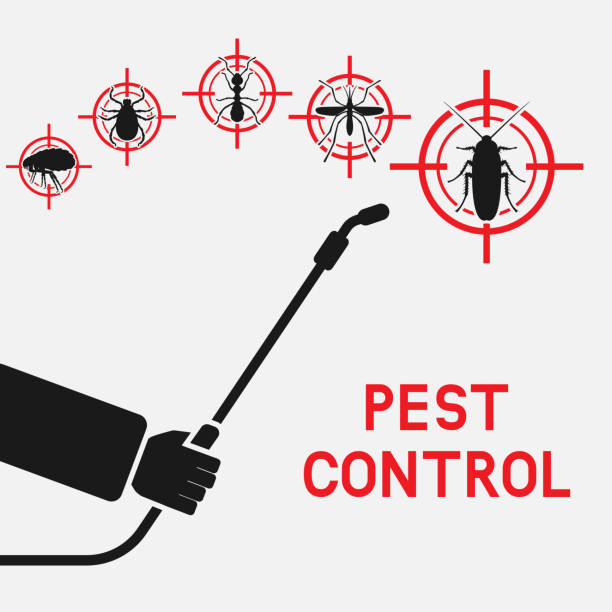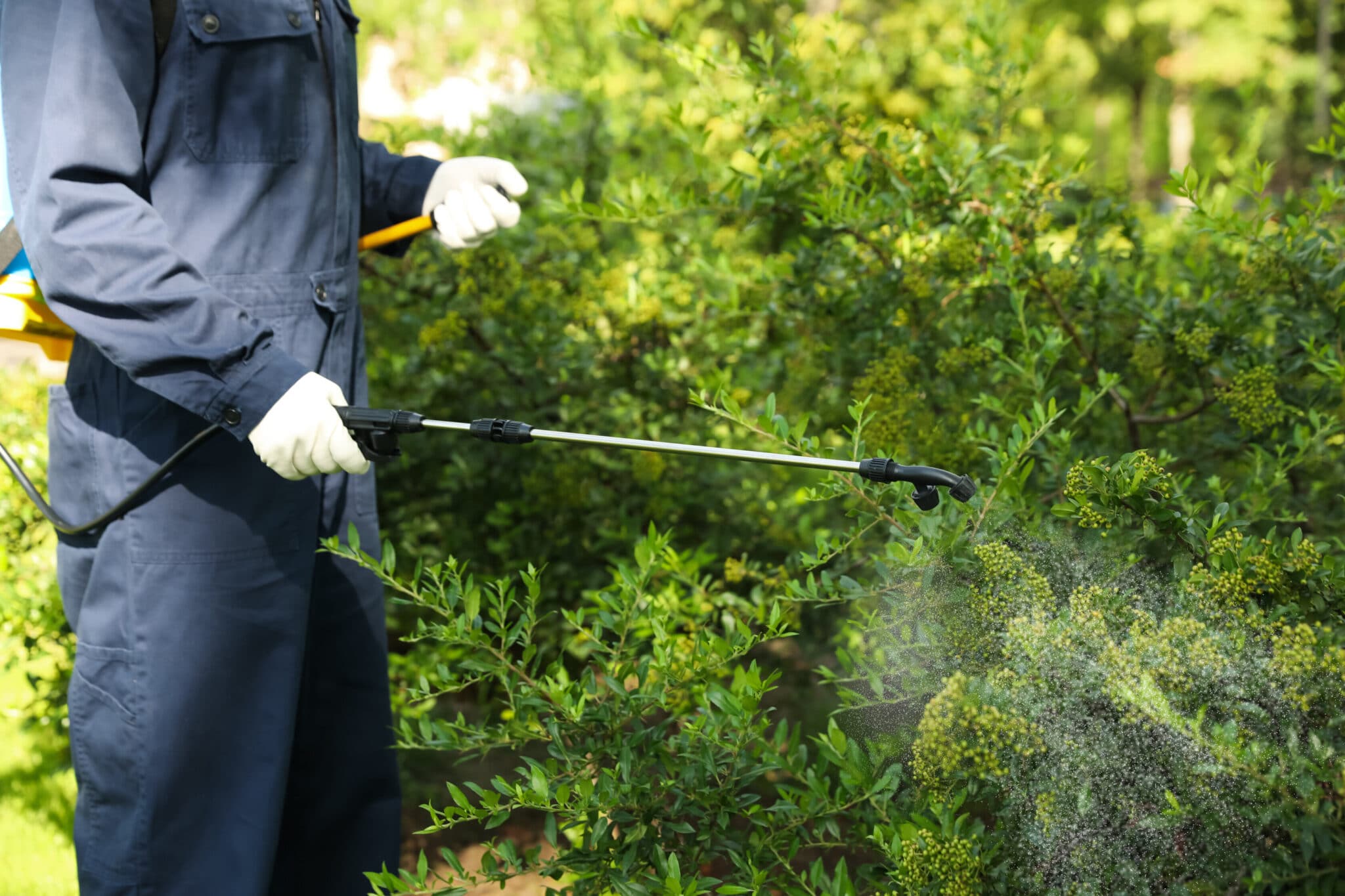Safe and Trusted Parasite Control for Lasting Defense
Effective insect management needs a multifaceted strategy that stabilizes environmental integrity with the demand for efficient bug reductions. The nuances of these techniques might not be promptly clear, motivating a more detailed exam of the techniques that can lead to sustainable insect control results.
Comprehending Parasite Control Techniques
Parasite control includes a variety of methods focused on handling and getting rid of unwanted bugs and rats that can endanger both health and wellness and building. Recognizing these methods is vital for effective parasite management.
The key classifications of bug control techniques include mechanical, organic, and chemical approaches. Mechanical techniques entail physical obstacles and traps to avoid parasite entrance and capture undesirable types. For example, utilizing screens on home windows or using sticky catches can dramatically lower parasite populations without presenting dangerous materials.

Chemical bug control is often one of the most recognized technique, making use of chemicals to eliminate bugs. These chemicals can be effective however need to be utilized with care to avoid damaging effects on non-target types and the setting.
Advantages of Eco-Friendly Solutions
Just how can environment-friendly solutions change pest control techniques? The fostering of environmentally friendly pest control approaches uses various benefits, considerably boosting the effectiveness and safety and security of bug administration (exterminator coquitlam). These remedies make use of all-natural components, lowering the dependence on dangerous chemicals that can position threats to human health and wellness and the environment. This change not just protects pet dogs and families but additionally lessens the potential for soil and water contamination.

One more advantage is the favorable effect on neighborhood biodiversity. Green options are made to target certain insects while preserving beneficial insects and wildlife, promoting a balanced community. This approach aligns with the growing customer demand for sustainable methods, improving the reputation of bug control carriers.
Integrated Insect Monitoring Techniques
The implementation of environment-friendly remedies normally results in the fostering of Integrated Pest Management (IPM) strategies, which additionally improve insect control efficiency. IPM is an all natural strategy that combines numerous strategies to take care of parasite populaces while reducing ecological impact. This approach stresses the usage of biological, cultural, mechanical, and chemical controls, guaranteeing a sustainable and balanced method of insect monitoring.
One essential aspect of IPM is the detailed evaluation of bug task and ecological problems. By keeping an eye on insect populations and determining their life process, specialists can execute targeted treatments that disrupt the bug's environment or lifecycle, lowering dependence on chemical pesticides. Additionally, cultural techniques such as try this website plant turning and environment control can considerably decrease pest facility and recreation.
One more crucial part is using organic control representatives, such as valuable pests or bacteria, which can naturally suppress insect populations. When chemical applications are required, IPM prioritizes the usage of low-risk chemicals and applies them selectively, minimizing direct exposure to non-target microorganisms and humans.
Integrating IPM strategies not just improves pest control effectiveness but likewise promotes a safer environment, straightening with the expanding demand for lasting practices in pest administration.
Safe Practices for House Owners
Recognizing the significance of risk-free methods in bug control can empower property owners to successfully handle pest issues while guarding their health and the atmosphere. Applying non-toxic methods and safety nets is crucial in minimizing direct exposure to harmful chemicals.
House owners must initially examine their atmosphere for conditions that attract pests, such as standing clutter, food, and water waste. Regularly cleaning and sealing entrance factors can discourage parasites from invading the home. Using all-natural deterrents, such as vital oils or diatomaceous planet, can provide efficient options to chemical pesticides.
When chemical therapies are required, property owners need to opt for products that are specifically classified as risk-free for residential usage. It is important to adhere to application standards thoroughly to stay clear of overexposure. In addition, making use of targeted therapies in locations where bugs are determined, as opposed to covering spraying, can considerably minimize chemical use.
Lastly, keeping open communication with insect control experts is essential. Property owners ought to inquire regarding the safety of items utilized and Recommended Reading demand eco-friendly options whenever feasible. By embracing these safe techniques, home owners can develop a healthier living environment while successfully managing parasite issues.

Tips for Long-Term Security
Developing a parasite monitoring strategy that highlights long-term protection can considerably enhance the efficiency of the risk-free methods previously talked about. To attain this, home owners must carry out routine assessments of their property, focusing on hidden locations such as attics, cellars, and crawl spaces. Early detection of bug task is crucial in avoiding invasions from holding.
These methods minimize attractants that attract bugs into the home. Securing access points, such as fractures around doors and pest spray for home windows, can efficiently block prospective bug access.
Landscaping should additionally be thought about; keeping plants trimmed and preserving a range in between plant life and the home lessens hiding spots for pests. Making use of natural deterrents, such as essential oils or diatomaceous planet, can additionally inhibit infestations without resorting to severe chemicals.
Last but not least, working together with an expert bug control solution for routine analyses can offer an additional layer of safety and security. These experts can supply customized referrals and advanced treatments, ensuring that your home stays secured against insects in the long term.
Verdict
In conclusion, risk-free and reliable parasite control calls for a diverse technique that highlights environment-friendly methods and integrated insect management. By implementing natural deterrents, carrying out routine inspections, and preserving proper hygiene, homeowner can considerably lower bug populations while securing advantageous bugs and the environment. Collaboration with expert insect control solutions improves the performance of these strategies, making sure customized remedies that supply long lasting protection and satisfaction versus future infestations.
Reliable pest management needs a complex method that balances eco-friendly stability with the need for efficient bug suppression. The adoption of eco-friendly parasite control approaches offers countless benefits, dramatically enhancing the effectiveness and safety of bug monitoring.The execution of environment-friendly remedies normally leads to the fostering of Integrated Pest Monitoring (IPM) techniques, which even more boost pest control effectiveness. exterminator coquitlam. By monitoring bug populations and determining their life cycles, specialists can carry out targeted interventions that interrupt the bug's environment or lifecycle, reducing reliance on chemical pesticides.In verdict, safe and reputable pest control calls for a complex method that stresses environmentally friendly methods and integrated insect administration